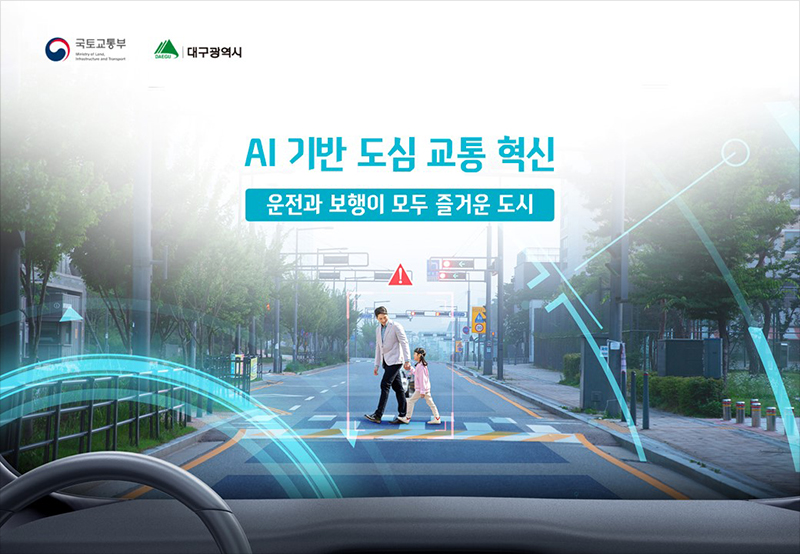Ministry of Land, Infrastructure, and Transport ‘Smart City Challenge’ selected as the main business, secured 40 billion won in national budget

Daegu City announced that it was selected as a target city for the main project of the 'Smart City Challenge' hosted by the Ministry of Land, Infrastructure, and Transport, and announced that it would expand the AI-based smart transportation system in earnest.
AI-powered urban transport innovation – a city where both driving and walking are fun
On March 3, the Korea Research Institute for Human Settlements held the '7 Smart City Challenge Main Project Selection Evaluation Committee', and through the announcement of the final results on March 2022, Daegu City promoted large-scale citizen participation, confirmed the possibility of improving traffic flow, and modeled collaboration among interested organizations. It was highly evaluated and secured 3 billion won from the government.
Daegu City has been promoting the preliminary project since June of last year, and six companies, including local companies Emotion Co., Ltd., Kakao Mobility Co., Ltd., and Korea Advanced Institute of Science and Technology, are participating in the consortium. Daegu National Police Agency (signal control support), Daegu Office of Education (provision of school arrival and departure time), Daegu Fire and Safety Headquarters (emergency vehicle dispatch support), Daegu Road Traffic Authority (signal control evaluation), TBN Daegu Traffic Broadcasting (traffic correspondent on-site support) Participating in inter-agency collaboration.
The target areas for the preliminary project were 19 intersections between Seodaegu-ro and Taepyeong-ro, and in February, as a result of a large-scale signal optimization test conducted targeting 2 vehicles, it was confirmed that the traffic speed was improved by up to 32%, and TBN Daegu Transportation On-site situation monitoring was also carried out through broadcasting correspondents.
In addition, as a private navigation system, it provided detour route guidance based on traffic information, child protection areas, and accident-prone areas, and the possibility of securing a golden time for 119 emergency vehicles was confirmed.
In the main project, Daegu City will ▲provide customized signal service by time and day of the week ▲support real-time TBN traffic broadcasting when emergency vehicles are dispatched ▲reorganize the signal system to prevent speeding ▲apply a signal control program that takes into account the signaling policy that gives preference to public transportation initiated by citizens In addition, it plans to supplement the plan to revitalize the living lab with citizen participation and linkage with the data hub, which the evaluation committee raised the need for supplementation.
Starting with the signing of an agreement with MOLIT in April, the full-fledged expansion project will be promoted, and by next year, about 4 intersections within the 4th loop will be intelligentized to improve traffic flow, and 260 types of traffic data will be collected and analyzed. Based on this, It plans to build an artificial intelligence (AI)-based transportation platform and traffic data dam, and continuously discover data-based transportation policies and convergence services.
In addition, it is expected to increase citizens' leisure time by reducing waiting time in traffic congestion, reduce carbon emissions, and reduce pedestrian traffic accidents.
Daegu Mayor Kwon Young-jin said, "We will solve the transportation problems facing Daegu by successfully establishing an artificial intelligence-based smart transportation system, and provide a more convenient transportation environment for citizens and create a sustainable smart city through data-based policy decisions." .



